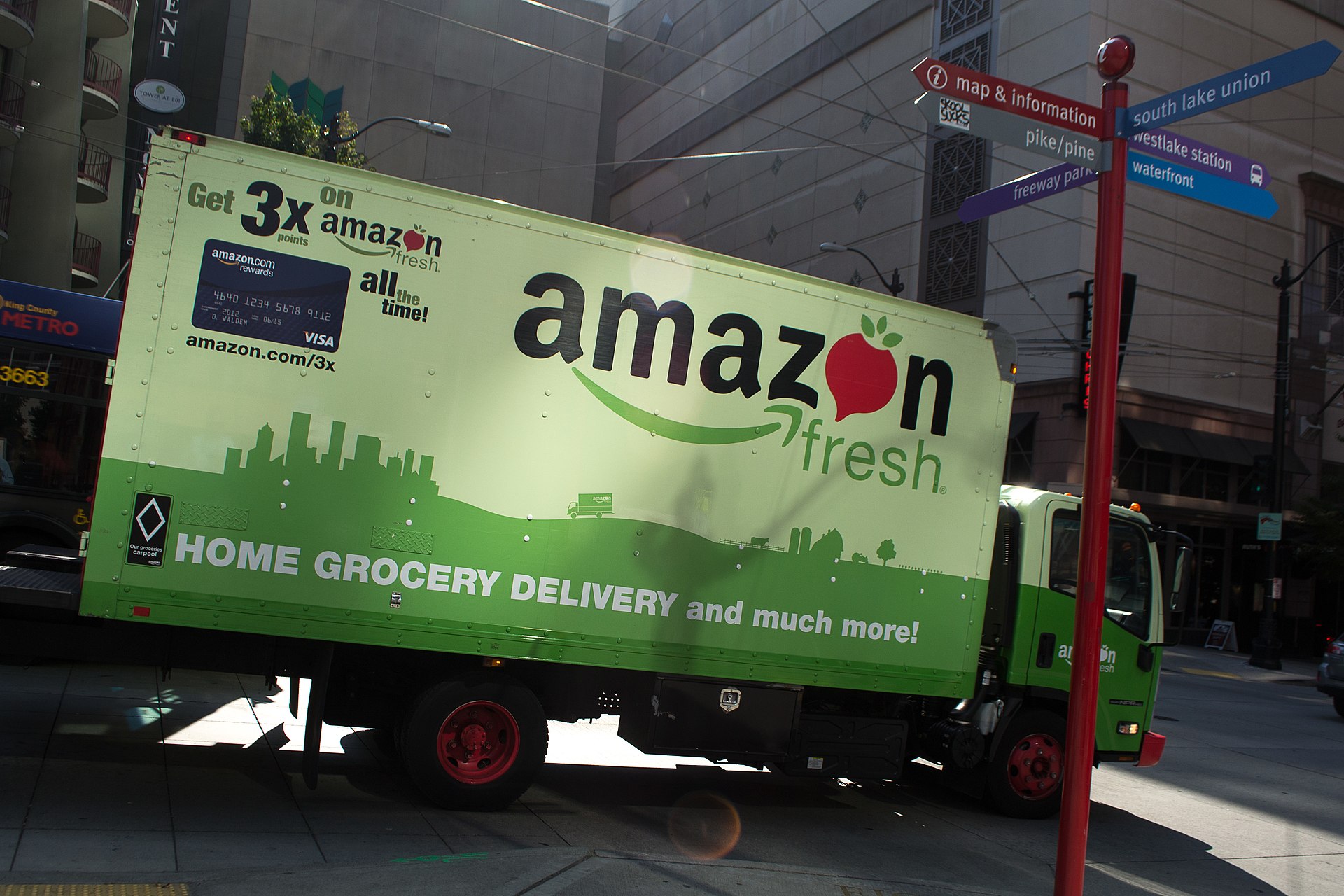In the following op-ed, Trellus CEO and Co-founder Adam Haber takes the opportunity to “sound off” on Amazon’s unbridled expansion on Long Island and e-commerce risks for Long Island small businesses.
The op-ed was published by Innovate Long Island on February 1, 2022, available at this link.
After COVID, Mom and Pop Face a Big E-Commerce Risk
by Adam Haber
The vast majority of consumers, better than 90 percent, now see two to three days as a baseline for product deliveries, while 30 percent expect same-day deliveries, according to research by McKinsey & Co. In a Bringg survey of global retailers, 99 percent of respondents said they will be offering same-day delivery within the next three years, compared to the 35 percent who offer it today.
Much as the Internet never went back to dial-up, the gap is closing on delivery wait times. And food-and-beverage retailers are at risk if they’re pinning their hopes to post-COVID foot traffic and not investing in an e-commerce strategy – in-person shopping alone will not be enough for long-term survival, not with Amazon literally knocking on the front door.
According to local reports, Amazon Fresh grocery stores are planned for East Setauket, Oceanside and Plainview. Sure, Amazon creates jobs, but what about local jobs for local businesses?

Adam Haber: Delivery man.
With nine distribution centers across Long Island totaling more than 1 million square feet, didn’t Amazon have enough market share without a retail experience? Apparently not – not when there’s a whole category of packaged foods and beverages they’d like to compete in.
So, how will small shops respond when they’re already fighting the setbacks from two years of COVID?
One essential way is to embrace evolving omnichannel experiences, in which retailers meet customers wherever they spend their time, whether it’s browsing the web, scrolling on social media or shopping in-person.
Trellus Networks, the company I co-founded to help small businesses adapt to a changing retail landscape, is a same-day local delivery service tailored to the needs of small businesses competing against big-box and e-commerce behemoths. My idea to start Trellus partially began in response to my frustration with local politicians who declared “shop local!” but did nothing to help small businesses find their footing in a rapidly evolving digital landscape.
Major players were always after other chains that could afford to transact at scale, but small businesses have been all but forgotten in this new reality. Delivery companies like DoorDash and UberEats operated unprofitably for years, while simultaneously sapping merchant profits per each transaction.
But that’s all changing. And delivery fees are about to go up, as the big players begin to consolidate their operations.
Just this week, instant delivery company Jokr announced plans to sell off its New York operations after raising $260 million in December (with a $1.2 billion valuation).
Fresh hell: At least, for local mom-and-pop grocers who don’t step up their delivery game.
Small businesses are understandably intimidated by the capital in this space. What they must remember is that this is a footrace – not a billionaire space race – to provide a better experience for local customers while minimizing losses. Whoever can build a better brand and deliver on the demands of the customer will rightfully earn their piece of the pie.
One Trellus merchant partner was ready to throw in the towel on her business when she heard about Amazon Fresh. Small-business solutions to fight e-commerce encroachment are often difficult to implement, because economies of scale are difficult to achieve; for instance, it costs at least $40,000 a year to employ a full-time delivery driver and maintain a fleet vehicle.
This merchant is exactly who we created Trellus for, providing access to a reliable network of gig drivers who complete same-day deliveries – an affordable option that makes sense for the bottom lines of small businesses.
According to the 2022 Bringg Barometer, almost one in four retailers struggles to meet delivery times due to lack of visibility and the distance between current warehousing and delivery points. Their operations are not set up for the growing trend of hyperlocal delivery.
But small businesses are at a distinct advantage when they handle fulfillment right in their store. A service like Trellus provides real-time visibility of the delivery and communication at every stage, ensuring a local, personalized experience from start to finish.
Independent Long Island businesses have more power than they think. With e-commerce behemoths eager to eat their lunch, it’s time these businesses dig in to improve customer experiences.
Adam Haber is the co-founder and CEO of Long Beach-based regional delivery service Trellus Networks.
Banner photo credit: Visitor7, CC BY-SA 3.0, Wikimedia Commons

 Trellus will be closed for all deliveries on Christmas Day and New Year's Day so our staff and drivers can enjoy the holidays with their families. Happy and Healthy Holidays.
Trellus will be closed for all deliveries on Christmas Day and New Year's Day so our staff and drivers can enjoy the holidays with their families. Happy and Healthy Holidays.
